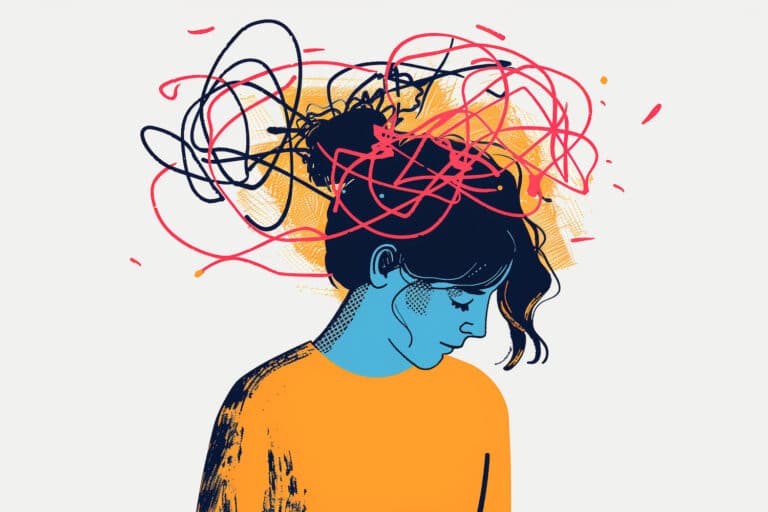By: Maggie Klyce, LICSW, PIP
Suicide. It is a topic that people tend to avoid talking about, a highly-stigmatized topic, and one that evokes shame in sufferers and fear in loved ones. However, we need to be discussing suicide. According to the Centers for Disease Control and Prevention, there is one death by suicide in the United States alone every 13 minutes. World Suicide Prevention Day is September 10 and for Magnolia Creek, suicide is an especially important topic in our work, as it is the leading cause of death in individuals with eating disorders is by suicide.
In working with clients who are coping with suicidal ideation, common themes that emerge are ones of isolation, disconnection, and hopelessness. The isolation experienced is such a deep hole, a pit in one’s being that it feels inescapable. The belief that no cares, no one understands or one’s mere presence is just a burden. Disconnection is shrinking away from life, a sense that reconnecting to self, to people, and to passions, is an impossible task. Most notably this disconnection is one from hope, as clients often feel trapped with no other choice or path for things to get better. They believe that recovery or relief from the present experience is no longer possible and suicide is the only choice.
Kay Redfield Jamison, a psychologist, and an individual who from personal experience knows about suicide, intimately describes the experience of suicidal ideation in a manner that helps bring clarity that can be incomprehensible to those who have not experienced it and is too familiar to many:
“When people are suicidal, their thinking is paralyzed, their options appear spare or nonexistent, their mood is despairing, and hopelessness permeates their entire mental domain. The future cannot be separated from the present, and the present is painful beyond solace.” (Night Falls Fast: Understanding Suicide, pg. 93)
Part of opening the dialogue around suicide is being able to recognize the warning signs in the people around us and knowing what actions to take.
General warning signs of suicide include:
● Discussion surrounding wanting to die or having suicidal thoughts
● Researching various methods of suicide
● Feelings of hopelessness or being trapped
● Sense of being a burden to others
● Increase in reckless behaviors
● Withdrawing from friends and loved ones
● Extreme mood swings
● Excessive sleep or no sleep
● Sudden shift in mood to one of happy and content (usually seen once a decision has been made to act on the ideation)
● Increases in anxiety and agitation
● Increased use of substances
● Loss of interest in activities that were previously enjoyable
● Giving away possessions
In individuals with eating disorders, factors have been identified that increase the risk that someone will attempt suicide. For those struggling with anorexia, these include being older, lower in weight, and struggling with substance use. For individuals with bulimia, these include other psychiatric diagnoses and a history of physical or sexual abuse. The risk of suicide associated with these disorders makes it even more imperative that treatment is sought.
When we shy away from discussions of suicide, we are strengthening the sense of isolation and disconnection that the individual suffering is experiencing. As a family member or friend, ask the uncomfortable questions, be willing to hear what is said, sit with someone in their present pain, and help your loved one seek further support. Avoid acting out of fear by responding with anger, denial of the problem, or making shaming statements. Suicide can be difficult to grasp, but work towards understanding where your loved one is coming from and respond with empathy and concern.
If you are struggling with thoughts of suicide, reach out, allow someone to be there with you, and take the risk to be open about your feelings. That risk is the one which begins to invite hope and connection.
If you or someone you know is experiencing suicidal ideation or displaying warning signs, it is important to seek help. Clinical care is one of the protective factors for suicide. Finding proper treatment is necessary to help restore a sense of hope and connection. Treatment varies based on an individual’s needs and presentation, as some struggle with suicidal thoughts in a very acute manner in response to a crisis, and for others, the thoughts are chronic and a continual stream. Therapy helps to recognize the function of these thoughts; many see them as a comfort or safety blanket, while others say it offers a plan for a life out of control. Regardless, understanding the function is important in the identification of the necessary skills needed to see hope and reconnect to life in a way that is meaningful.
At Magnolia Creek, we strive to help clients both identify what comprises a life worth living and how to begin living that life. This can be a daunting task to someone who feels hopeless, like they have no more energy to try, and no sense of direction for where to even start. However, while it is seeming impossible to those in the depths of the struggle, it is a journey that we have the privilege of seeing our clients embark on and have success with daily.
If you or a loved one are experiencing suicidal thoughts, call the National Suicide Hotline 1-800-273-8255 this is an excellent resource for additional support.
Magnolia Creek specializes in supporting people who struggle with co-occurring eating disorders and substance use disorders. Please contact us by calling 205-235-6989 or completing our contact form for support or for additional resources in your own community.




